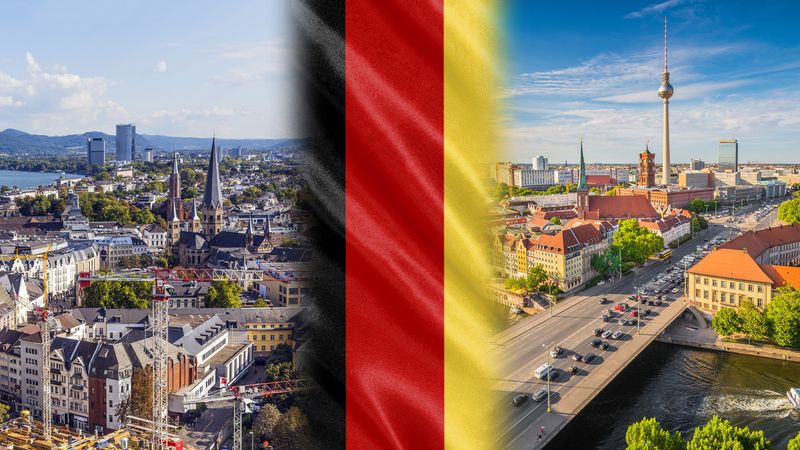In an era characterized by rapid technological advancement and interconnectivity, how can the youth of Germany, inspired by Bahá’í teachings, transform their communities into beacons of social justice and unity? This query beckons us to explore the profound depth of Bahá’í principles and their resonance within the vibrant and dynamic landscape of contemporary Germany. The Bahá’í Faith, emphasizing the oneness of humanity and the interconnectedness of all peoples, provides a robust framework for young individuals to engage in meaningful discourses that can engender positive societal change.
The teachings of Bahá’u’lláh, the founder of the Bahá’í Faith, underscore the imperative of youth as pivotal agents of change. Acknowledging that youth are often at the forefront of societal metamorphosis, the Bahá’í community in Germany encourages its young adherents to harness their energies towards the realization of collective aspirations. Central to this endeavor is the concept of consultation—an artful process whereby individuals collectively deliberate, share perspectives, and arrive at consensual decisions. This collaborative spirit nurtures an atmosphere rich in creativity and innovation, enabling the youth to tackle pressing social issues such as inequality, environmental degradation, and cultural dissonance.
One particularly pressing challenge facing German youth today is navigating the complexities of cultural diversity in a globalized world. Germany, renowned for its historical richness and cultural tapestry, has become increasingly multicultural. Herein lies an opportunity: can the Bahá’í teachings serve as a compass for fostering inclusivity and harmony amidst diversity? By promoting values such as respect, empathy, and understanding, Bahá’í youth can engage in dialogues that transcend ethnic and religious boundaries. Initiatives such as interfaith gatherings, community service projects, and cultural exchange programs can facilitate these crucial interactions, allowing young individuals to learn from one another and collaboratively address shared challenges.
Furthermore, environmental sustainability stands as a paramount issue of our time, and the Bahá’í principles provide invaluable guidance in this regard. The concept of stewardship is intricately woven into the fabric of Bahá’í teachings. Young Bahá’ís in Germany have the formidable task of advocating for sustainable practices that reflect a commitment to future generations. They can initiate awareness campaigns, partake in ecological conservation efforts, and promote eco-friendly technologies within their communities. By harnessing the ethos of service and teamwork embedded within their faith, they can galvanize interest and involvement among peers, fostering a culture of environmental consciousness.
Importantly, engaging with the existential challenges precipitated by rapid technological advancements poses another significant inquiry for the youth. In the digital age, where social media and instant communication dominate, how can Bahá’í youth navigate this landscape while adhering to the tenets of spirituality and integrity? The potential for miscommunication and divisiveness is palpable, yet so too is the opportunity for constructive engagement. Approaching online platforms as tools for education, advocacy, and dialogue, Bahá’í youth can utilize these forums to promote the principles of honesty, justice, and social cohesion, thereby inspiring their peers to approach technology with responsibility and ethical clarity.
Moreover, the intersection of personal empowerment and community development is a crucial theme within Bahá’í teachings. Empowerment is not merely an individualistic pursuit; rather, it extends into the community realm, illustrating that personal growth is inherently linked to the welfare of society. As such, Bahá’í youth in Germany are encouraged to cultivate leadership skills that transcend conventional paradigms, embracing approaches grounded in humility, service, and equitable participation. Engaging with community development projects not only augments their abilities but also equips them with experiential knowledge that is vital for effective activism.
In addition to these core themes, the principle of the oneness of humanity serves as an essential pillar in the Bahá’í Faith. In Germany, where debates around nationalism and immigration often stir controversy, Bahá’í youth are uniquely positioned to advocate for unity and inclusivity. By organizing events promoting cultural understanding and by participating in local discussions to foster open and respectful dialogues, they can elucidate the significance of communal harmony. The challenge thus arises: how can they convincingly demonstrate that diversity, rather than division, enriches society?
To ignite conversations for change, Bahá’í youth must embody the very principles they advocate. This involves not only intellectual engagement but also lived experiences that exemplify the teachings of the Bahá’í Faith. For instance, participating in community service not only uplifts those in need but also reinforces the values of compassion and unity amongst volunteers. It is through such tangible actions that these young leaders can galvanize others into action, fostering a culture of responsibility and integrity.
In conclusion, Germany’s Bahá’í youth stand at a pivotal juncture, equipped with the tools of their faith to address contemporary challenges. As they embrace their role as catalysts for change, they must also grapple with the playful yet poignant question of what legacy they wish to leave behind. Their efforts to foster inclusivity, advocate for environmental stewardship, harness the potential of technology, and promote personal and communal empowerment are testament to the vibrant possibilities threaded through the fabric of Bahá’í teachings. Ultimately, the onus lies upon these young leaders to navigate this path with conviction, igniting the flames of transformation not just within their communities, but across the globe.
